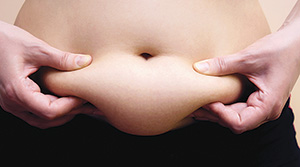Managing a healthy body weight
 These days most checkup reports from your doctor visit include not only your blood pressure, but your Body Mass Index, or BMI.
These days most checkup reports from your doctor visit include not only your blood pressure, but your Body Mass Index, or BMI.
Body Mass Index is an indicator of the amount of body fat for most people. It is used as a screening tool to identify whether an adult is at a healthy weight. Having a healthy weight goes far beyond improved energy and smaller clothing sizes. By losing weight or maintaining a healthy weight, you can enjoy these quality-of-life factors too:
- Fewer joint and muscle pains.
- More energy and greater ability to join in desired activities.
- Better regulation of bodily fluids and blood pressure.
- Reduced burden on your heart and circulatory system.
- Better sleep patterns.
- Reductions in blood triglycerides, blood glucose, and risk of developing type 2 diabetes.
- Reduced risk for heart disease and certain cancers.
EXCESS WEIGHT INCREASES THE HEART’S WORK
Being too heavy also raises blood pressure and blood cholesterol and triglyceride levels and lowers HDL (good) cholesterol levels. It can make diabetes more likely to develop, too.
Lifestyle changes that help you maintain a three percent to five percent weight loss can result in meaningful improvements in blood glucose, triglycerides and risk of developing type 2 diabetes. Greater weight loss can even help reduce your blood pressure and improve blood cholesterol.
Your body is made up of water, fat, protein, carbohydrate and various vitamins and minerals. If you have too much fat – especially if a lot of it is at your waist – you’re at higher risk for such health problems. That increases your risk for heart diseases and stroke.
Obesity is now recognized as a major, independent risk factor for heart disease. If you’re overweight or obese, you can reduce your risk for heart disease by successfully losing weight and keeping it off. How do you know if you are dangerously overweight? One way is to determine your Body Mass Index.
 WHAT’S YOUR BMI?
WHAT’S YOUR BMI?
The Centers for Disease Control (CDC) has an easy online calculator for adults, 20 years old and older. For children and teens, two through 19 years old, use the BMI Calculator for Children and Teens.
To use the calculator visit cdc.gov/healthyweight/assessing/bmi/adult.
You also can calculate your BMI using this formula: 703 times your weight in pounds divided by your height in inches squared. For example, 703 x 185 pounds divided by 70 in. x 70 in. results in a BMI of 26.5, or slightly overweight.
BMI OF LESS THAN 18.5
A BMI of less than 18.5 indicates that you are underweight, so you may need to put on some weight. You are recommended to ask your doctor or a dietitian for advice.
BMI OF 18.5–24.9
A BMI of 18.5-24.9 indicates that you are at a healthy weight for your height. By maintaining a healthy weight, you lower your risk of developing serious health problems.
BMI OF 25–29.9
A BMI of 25-29.9 indicates that you are slightly overweight. You may be advised to lose some weight for health reasons. You are recommended to talk to your doctor or a dietitian for advice.
BMI OF OVER 30
A BMI of over 30 indicates that you are heavily overweight. Your health may be at risk if you do not lose weight. You are recommended to talk to your doctor or a dietitian for advice.
Some well-trained people with dense muscle mass may have a high BMI score but very little body fat. For them, the waist circumference, the skinfold thickness or more direct methods of measuring body fat may be more useful measures than BMI.
KEEP IN SHAPE AS YOU AGE
Maintaining a healthy body weight can keep you in shape through your senior years and ward off a host of health problems. But how do you achieve a healthy body weight, especially if a slowing metabolism is working against you?
First, figure out how many calories you need to eat in a day to get to and maintain your ideal weight.
- Women over age 50 who are inactive and get little to no exercise need about 1,600 calories each day. That number jumps to 2,000 to 2,200 for very active women. For most average women, though, it’s about 1,800 calories.
- Men over age 50 need about 2,000 calories each day if they’re not very active, and between 2,200 and 2,400 if they’re moderately active. Men who get a lot of physical activity each day need between 2,400 and 2,800 calories.
To burn those calories, add physical activity into your weight management equation. If you can burn an extra 100 calories a day, which is a realistic expectation, you could save yourself from putting on an extra 10 pounds in a year.



Leave a Reply